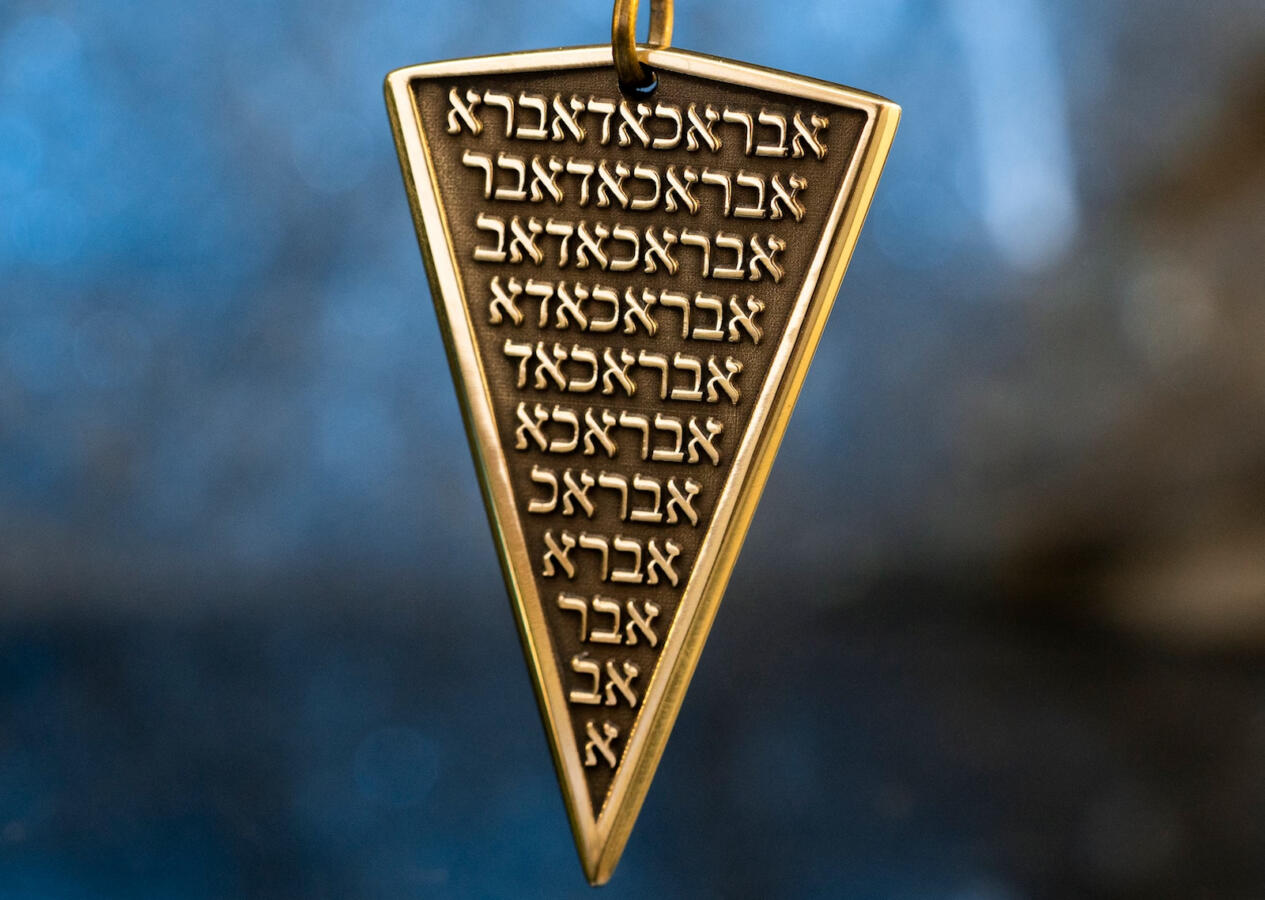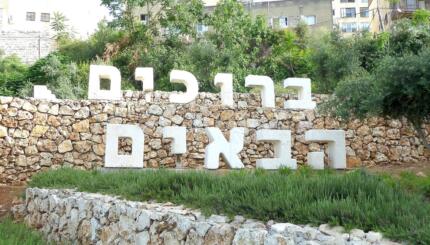Abracadabra is an English word with no proper definition. It is used as a magic charm or incantation, often said at the climactic moment of a magic trick. But the word’s origins are unclear.
It is widely asserted that the word derives from the Aramaic expression avra k’davra which, depending on how one renders it in Hebrew letters, can mean either “It was created as I spoke” or “It came to pass as I spoke.” However, the phrase appears in no ancient Jewish sources.
The Oxford English Dictionary claims that its etymological roots are unknown. The OED notes the claim of Hebrew or Aramaic origin alongside theories that it comes from Greek (abraxas was a mystical word inscribed on amulets) or other languages, but asserts there’s no documentation that can prove any of it.
What is broadly agreed is that the word itself first appeared in print in the second century in a volume by the Roman physician Serenus Sammonicus. Serenus prescribed the wearing of an amulet inscribed with the word in an inverted pyramid shape, with each iteration removing one letter until only the first remains.

Help us keep Jewish knowledge accessible to millions of people around the world.
Your donation to My Jewish Learning fuels endless journeys of Jewish discovery. With your help, My Jewish Learning can continue to provide nonstop opportunities for learning, connection and growth.
The case for a Jewish origin of the word is circumstantial, and likely derives at least some of its power from the fact that it just feels correct: “It was created as I spoke” feels like exactly what a magician means as she pulls a rabbit out of a hat. But there are a few commonly cited pieces of evidence, among them a talmudic formulation for warding off an evil water demon known as Shavrirei. The incantation suggested in the Talmud consists of reciting the demon’s name while removing a letter from the beginning each time, a method similar to Serenesus’ Abracadabra formulation.
Rabbi Aryeh Kaplan, in the introduction to his translation of the mystical text Sefer Yetzirah, notes the similarity of abracadabra to another talmudic phrase: ravah barah gavrah, which means “Rava created a man.” The phrase appears in the context of a story in which the talmudic sage Rava created a golem using mystical knowledge. The similarity in language alludes to Rava imitating the life-creating power of God, who spoke the universe into being — abracadabra.
It has also been suggested that the word is an acronym for the Hebrew words av, ben and ruakh hakodesh, which translates to “father, son and the holy spirit.”
Yet despite the paucity of source material, the idea that abracadabra derives from Hebrew or Aramaic is widespread and routinely asserted without qualification. Rabbi Alan Lew, in his classic work This Is Real And You Are Completely Unprepared, writes that it is “a popular talmudic dictum that expressed the widely held talmudic belief that things do indeed come to pass because they are spoken.” A similar claim is made in this My Jewish Learning article about demons and ghosts.



